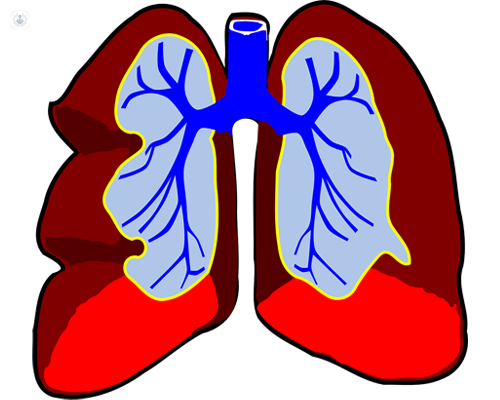Respiratory system development
Dr Sunit Godambe - Paediatrics
Created on: 11-13-2012
Updated on: 01-15-2024
Edited by: Lauren Dempsey
What is the respiratory system?
The respiratory system consists of all organs and tissues, such as the airways, lungs, and blood vessels, that work together to allow us to move oxygen through the body. Oxygen is needed for many basic activities that our bodies carry out, like moving our muscles and digesting food. Carbon dioxide, the waste product of these processes, is removed from the body through the respiratory system also.

What are the stages of respiratory system development?
The respiratory system development beings when the foetus is about four weeks old, continuing into childhood. It is closely linked to the development of the digestive system and the lungs develop in five stages. These are:
- embryonic (week 3-6 of gestation)
- pseudoglandular (week 6-16 of gestation)
- canalicular (week 16-28 of gestation)
- saccular (week 28-36 of gestation)
- alveolus (final stages of foetal development into childhood)
In the womb, the lungs are filled with fluid, mucus, and pulmonary surfactant, which is a crucial substance produced by certain cells to reduce surface tension. The foetus gets its oxygen from the mother’s placenta, via the umbilical cord.
When the baby is born, it will take its first breath within the first ten seconds. This is important, as it inflates the lungs and the remaining fluid drains. To prevent the lungs from collapsing in on themselves, there must be a sufficient amount of surfactant present. Insufficient amounts, therefore would hinder the inflation of the lungs, making it difficult to breathe, which can lead to further complications.
The lungs are considered fully developed when the necessary number of alveoli have developed, well into childhood, usually around eight years of age.
Can a baby be born with underdeveloped lungs?
If a baby is born before their lungs are fully developed, they are unable to breathe correctly and don’t get enough oxygen. This condition is called newborn or neonatal respiratory distress syndrome (NRDS) and is common in premature babies, born before their lungs have fully grown. This condition can affect babies who aren’t premature, like if the mother is diabetic or if the baby is underweight. If it is suspected that a baby’s lungs aren’t full developed before birth, corticosteroid injections can be given during labour to reduce the chances of the baby being born with NRDS.
How can underdeveloped lungs in an infant be treated?
After a premature birth, the baby will usually be given oxygen therapy and placed on a ventilator. Babies can also be treated with surfactant promptly after birth to prevent the lungs from collapsing in.
What complications can arise from NRDS?
- Build-up of air in chest, which can affect the lungs and heart.
- Bleeding in the brain or lung.
- Stunting of lung development (bronchopulmonary dysplasia).
In serious cases, NRDS can cause intellectual disabilities or delayed intellectual development as a result of bleeding in the brain.
What specialist deals with respiratory system development issues?
A specialist in neonatology (neonatal medicine) will be able to diagnose and treat a premature baby if they have NRDS.
